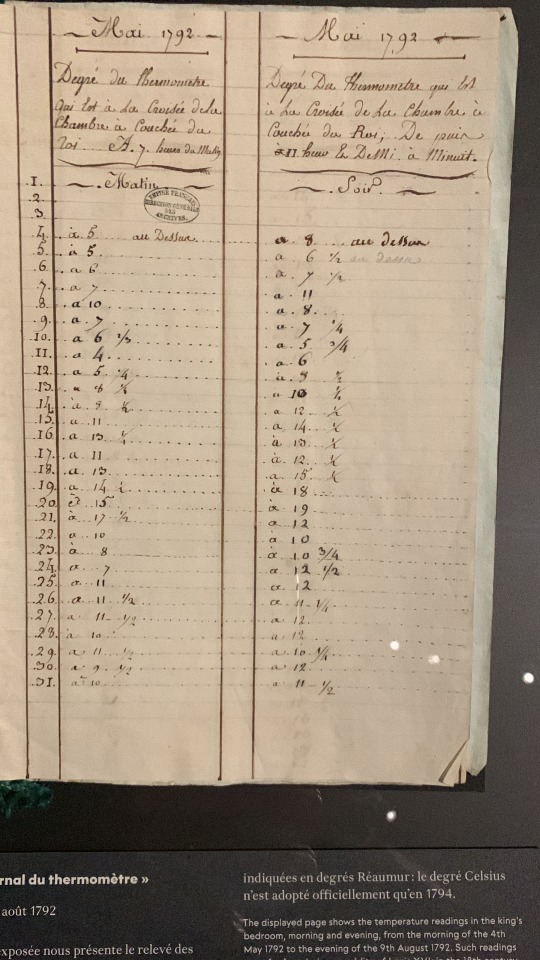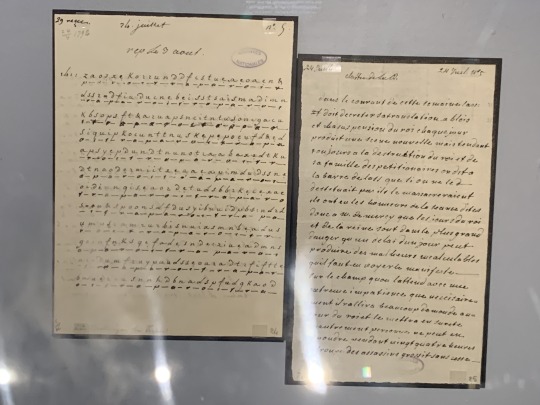#révolution nationale
Explore tagged Tumblr posts
Text
"The ideological climate of the defeat of 1940 and the establishment of the French State are related in many aspects to the climate that developed in reaction to Sedan and during the years that followed the defeat of the Paris Commune. For writers close to the National Revolution, the Commune was viewed in the same way as the Popular Front. A propaganda journal published by the new regime stated:
It is a constant law of history that defeats result in revolutions. The French had not forgotten the bloody disturbances of the commune of 1871… . France was going to add even more misfortune to those that already overwhelmed it. It was to be feared that, following the bent to which odious propaganda had accustomed them, minds would turn toward a bloody, fratricidal fight. . . . The Marshal’s government successfully confronted and dealt with this danger. Without any-movement, without one cry of dissension, the political revolution was brought about.
Henri Massis, the officer responsible for press relations to General Huntziger at the time, stated plainly that the first news of the armistice had evoked the memory of 1871 and the fear of a new Commune. Thus, the primary task of the armistice army was to maintain order. The defeat would appear to many intellectuals as the final blow to 'French decadence.’ The themes of national decline, collective fault, and biological and political sins echoed one another in an obsessive litany during the period following June 1940, just as during the 1870s. Maurras even suggested anthologizing Renan’s La Reforme intellectuelle et morale, which he felt might render “a great service to the French people of 1940, since those of 1870 failed to take proper note of it.” The precepts and maxims of the Marshal—the “guide in possession of incomparable and almost superhuman wisdom and intellectual control” — functioned like calls to self-flagellation, and many would lend their skills to an attempt at exegesis. Georges Bernanos offered a gripping expression of the political bases and effects of the encounter between the message of the defeat, spoken by the prophet, and the “expectation” of those who saw the National Revolution as a national opportunity:
All that is called the Right, which ranges from the self-styled monarchists of the Action francaise to the self-styled national socialist radicals and includes big industry, big business, the high clergy, the Academies, and the officers’ staff spontaneously united and cohered around the disaster of my country like a swarm of bees around their queen. I am not saying that they deliberately wished the disaster. They were waiting for it. This monstrous anticipation passes judgment on them.
- Francine Muel-Dreyfus, Vichy and the Eternal Feminine: A Contribution to a Political Sociology of Gender. Translated by Kathleen A. Johnson. Durham: Duke University Press, 2001. p. 15-16.
#révolution nationale#régime de vichy#vichy france#reactionary politics#paris commune#action francaise#marshal pétain#georges bernanos#renan#occupied france#world war ii#academic quote#histoire de france#reading 2024#disaster politics#popular front#front populaire
2 notes
·
View notes
Photo

21 octobre 1793 : la Convention adopte le calendrier républicain ➽ http://bit.ly/Decret-Calendrier-Republicain Par décret, la Convention adopte ce calendrier, avec le tableau annexé en reproduisant la nomenclature, la dénomination et les dispositions sous le titre de « Annuaire républicain », l’usage en étant instauré le 24 novembre suivant
#CeJourLà#21Octobre#Décret#Calendrier#Républicain#République#Convention#Nationale#Révolution#Mois#Années#Jours#Nomenclature#histoire#france#history#passé#past#français#french#news#événement#newsfromthepast
4 notes
·
View notes
Text

Décret ordonnant la levée de 300 000 hommes, 24 février 1793
"This special military levy was the forerunner of the famous “levy en masse.” It was the preliminary step in the development of a scheme of national conscription which was to be perfected in the later days of the Revolution and under Bonaparte, and which was to be adopted subsequently by all major European states as the basis of their military organization. For the most part the levy was successful, although it occasioned rebellious opposition on the part of many Catholic peasants."
***
' All French citizens from the age of eighteen to fully forty years, unmarried or widowers without children, are in a state of permanent requisition until the date of completion of the effective recruiting of the newly levied 300,000 men hereinafter decreed.
The Executive Council and the generals of the armies of the Republic may requisition the said citizens; the generals shall render account to the Executive Council, and the Executive Council to the Convention, of the number of those who have been requisitioned, and of the departments on which the various requisitions have been made.'
(John Hall Stewart. A Documentary Survey of the French Revolution. New York, Macmillian, 1951.)
#French Revolution#The French Revolution#La Révolution française#Frev#The National Convention#La Convention nationale#Bonaparte#Napoleon Bonaparte#(mentioned)#Back at it again with the boring history posting#Military History#History#French History
14 notes
·
View notes
Text
🇫🇷🎇 [Special History] July 14: “Nothing”
King Louis XVI wrote “nothing” in his journal on July 14, 1789. This fact is quite popular but often misunderstood. The king wrote “nothing” when he had not been hunting that day.

🇫🇷🎇 [Spécial Histoire] 14 Juillet : “Rien”
Le roi Louis XVI avait noté “rien” dans son journal à la date du 14 juillet 1789. Ce fait est assez populaire mais souvent mal compris. Le roi notait “rien” lorsqu'il n’avait pas pratiqué la chasse ce jour-là.

#14 juillet#july 14#history#histoire#education#éducation#learning#apprendre#national holiday#fête nationale#french revolution#révolution française#revolution#révolution#bastille day#jour de la bastille#bastille#culture#fête#festival#fête de la fédération#1789#1790#french#français#english#anglais#fraternité#liberté#freedom
2 notes
·
View notes
Text
vimeo
A la recherche du passé obscur de son grand-père paternel, la réalisatrice nous plonge dans la France vichyste de la Révolution Nationale. A travers l’engagement d’un homme ordinaire se révèle une partie de l’histoire refoulée des Français. Cette traversée se heurte au silence et à l’évitement de la petite à la grande histoire pour enfin faire advenir la parole. Ce processus est là d’autant plus difficile que l’histoire des grands-parents maternels est marquée par la Shoah.
#documentaire#documentary#film#histoire#occupation#France#vichyste#Vichy#Révolution#Nationale#Shoah#Français#Seconde#guerre#mondial#nazis#worldwar2#Vimeo
0 notes
Text
Ce jour-là,… 1er fév 2017, Étienne Tshisekedi wa Mulumba décède à Bruxelles, des suites d'une embolie pulmonaire, à l'âge de 84 ans
Figure historique de l’opposition congolaise, Etienne Tshisekedi wa Mulumba était un défenseur acharné de l’instauration de la démocratie en RDC. Entre 1961 et 1965, Étienne Tshisekedi est le recteur de l’École nationale de droit et d’administration (ENDA). En 1965, lorsque Mobutu fait son 2ème coup d’Etat, Etienne Tshisekedi participe au gouvernement en tant que ministre de l’Intérieur et des…

View On WordPress
#1er fév 2017#Étienne Tshisekedi wa Mulumba décède à Bruxelles#Conférence nationale souveraine chargée de redresser le pays#Mouvement Populaire de la Révolution (MPR)
0 notes
Text

Vivre dignement
Les idées d’extrême-droite gagnent du terrain dans le monde. Les partis du centre et de la droite adoptent leurs idées. Elles sont séduisantes car elles proposent de rétablir la dignité en affirmant l’identité nationale.
En effet, beaucoup de territoires ont été abandonnés (services publics, santé, transports, etc.) au profit des villes. Les gens qui y habitent sont jugés fautifs par le néolibéralisme omniprésent: s’ils échouent, ce serait bien de leur faute! S’ils sont au chômage, avec des kilos en trop, c’est parce qu’ils n’auraient pas de mérite. L’extrême droite leur propose de se penser au-dessus de ceux qui sont étrangers. Leur hérédité suffit; sans rien faire, ils gagnent de la valeur.
Mais il y a des moyens plus en accord avec la démocratie et le vivre ensemble de retrouver de la dignité. Il n’y a pas besoin de s’en prendre aux immigrés. Il faut reconnaître l’existence de ces personnes désignées comme “déplorables” et leur redonner une place dans la société.
Des revenus suffisants pour se nourrir en accord avec l’environnement (permaculture bio) et des services publics sont indispensables. Il faut investir massivement dans des infrastructures et instaurer un revenu universel de base.
Bien travailler dans de bonnes conditions, c’est la dignité! Il faut bannir la concurrence quand celle-ci ne respecte pas la qualité, les critères sociaux et les critères environnementaux.
La subvention est un piège. Elle n’augmente pas le niveau de vie, elle permet juste de donner de l’argent public aux riches. Par exemple, donner une allocation logement permet aux propriétaires de monter les prix des loyers; l’argent public se retrouve ainsi dans la poche des propriétaires. Autre exemple, subventionner l’agriculture en fonction de la quantité de pesticides utilisés obligent les paysans à reverser ce qu’ils touchent aux industriels de l’agro-alimentaire.
Le contrôle des prix sur l’essentiel nourriture, logement, santé est indispensable pour vivre dignement. D’abord, les producteurs ou éleveurs doivent pouvoir vivre de leur travail au lieu d’être assisté par la collectivité par des aides sociales qui sont sous conditions. Le prix de vente doit être digne pour que les producteurs ou agriculteurs puissent travailler en accord avec leur volonté, qu’ils soient autonomes et responsables. Sinon, Cargill, par exemple, pourra acheter à trois francs six sous des produits qui ne respectent pas la nature. Deuxièmement, les logements en ville excluent les gens de la campagne. Il est devenu trop cher de se loger et donc de faire des études. Les loyers doivent être contrôlés.
Ce qui est inacceptable ici est inacceptable ailleurs. Il faut donner des conditions à l’importation. Il faut que les multi-nationales soient responsables de leurs actions anti-sociales et anti-environnementales sur place comme à l’étranger.
La propriété privée ne peut pas être absolue. La pollution, la destruction des forêts ne peuvent pas être acceptées. La liberté est limitée car il ne faut pas être nocif pour les autres.
Le capitalisme doit être combattu car dans une entreprise la propriété donne l’intégralité du pouvoir de décision. Les employés et la société doivent avoir leur mot à dire car ils ont contribué au succès de l’entreprise: route, police, école, formation, etc. Et ils ont aussi leur mot à dire sur l’impact sur l’environnement et le traitement des employés et des animaux. L’avenir de l’entreprise doit être entre leurs mains, ils doivent pouvoir agir sur l’avenir de leur emploi. Il est vrai que les propriétaires prennent un risque. Mais les employés aussi prennent des risques: ils ont investis avec leurs études, ils déménagent, ils scolarisent leurs enfants. Les capitaux se déplacent sans aucune contrainte et voyagent d’une entreprise à l’autre. La propriété n’est pas un droit sacré. Pas de maisons vides quand il y a des gens qui dorment dans la rue!
La charité ne permet pas d’être digne. Il faut pouvoir être autonome du fait de son action positive pour la société. Si les gens se sentent bien, ils tombent moins malades et cela coûte moins cher à la société. Ceux qui possèdent et sont responsables des burn-out voire des suicides de leurs employés et qui polluent à gogo pour leur seul intérêt personnel sont valorisés alors qu’une personne au chômage qui cultive son potager et s’occupe des jeunes et des vieux ne l’est pas.
Pour combattre l’extrême droite, il faut arrêter de se contenter de la diaboliser même s’il est vrai qu’elle est un véritable danger pour les démocraties et les valeurs de la révolution. Il faut proposer des mesures qui redonnent de la dignité à tous, qui permettent de vivre ensemble sans exclure.
-------------------------------------------------------------------------
Commerce équitable et bio: https://www.aurianneor.org/commerce-equitable-et-bio/
Liberté et vivre ensemble: https://www.aurianneor.org/liberte-et-vivre-ensemble/
Limiter la richesse individuelle: https://www.aurianneor.org/wp-admin/post.php?post=7117&action=edit
Comment regagner la confiance?: https://www.aurianneor.org/comment-regagner-la-confiance/
Les intermédiaires: https://www.aurianneor.org/les-intermediaires/
Representation of capitalism trying to take all the resources and trying to make workers live nothing but work: https://www.aurianneor.org/representation-of-capitalism-trying-to-take-all-the-resources-and-trying-to-make-workers-live-nothing-but-work/
Le logement: https://www.aurianneor.org/le-logement/
Le revenu de base, c’est possible: https://www.aurianneor.org/le-revenu-de-base-cest-possible-the-instrument/
Immigration: https://www.aurianneor.org/immigration/
“Capitalism will eat democracy; unless we speak up”: https://www.aurianneor.org/yanis-varoufakis-capitalism-will-eat-democracy/
Les humiliés de la République: https://www.aurianneor.org/les-humilies-de-la-republique/
#aurianneor#campagne#capitalisme#charité#concurrence#démocratie#déplorable#dignité#entreprise#environnement#étrangers#extrême droite#identité#loyers#mérite#multi-nationales#privé#propriété#responsable#Révolution#social#société#subvention#valeur#ville#vivre ensemble
1 note
·
View note
Text
There was this great difference between Pétion and me — he had a particular deference for Robespierre, and I had an invincible aversion for this man who had the face of a cat. […] [Pétion] had a kind of inexcusable weakness for Robespierre.
Mémoires de François-Nicolas-Louis Buzot, membre de l’assemblée constituante et député à la Convention nationale par le departement de l’Eure in Mémoires inédits de Pétion et mémoires de Buzot & de Barbaroux (1866), page 43, and Mémoires sur la Révolution française, par Buzot, député a la Convention nationale, précédés d'un précis de sa vie et de recherches historiques sur les Girondins (1828), page 162.
Don’t worry Buzot, you’re still the one who got to got to share a bed with Pétion for half a year before committing a tragic double suicide together:
This man, whose name must be recorded here, Baptiste Troquart, with the only means of existence provided by difficult work, did not hesitate to brave the dangers, to help proscribed deputies, men in misfortune. It was in the first days of 1794. “I took care of them as best I could,” he said, “with all the simplicity of an honest soul; I was a wigmaker, I earned at least 1200 francs a year; during the day and during the night I worked to provide them with the necessary sustenance, which was easier for me than for anyone else, because I had many relationships with the people of the countryside, whom I shaved.” We learned from his own mouth all the precautions, all the tricks that had to be used, all the fatigue that had to be braved for their first needs: the details were touching. We also visited the asylum of the poor (Buzot’s expression). “There, he told us, Buzot and Pétion slept; they occupied my bed; here, on mattresses, rested Barbaroux; there we cooked together; in this old armchair sat Pétion.” And tears of tenderness escaped from his eyes. Preface to Mémoires sur la Révolution française , par Buzot, député a la Convention nationale, précédés d'un précis de sa vie et de recherches historiques sur les Girondins (1828), page 17-18.
#robespierre#pétion#buzot#frev#ok but why does he sound so jelly#you got to flip mde roland isn’t that enough?#buzot is the barère of the petitspierre confirmed?#if i had a nickel for every time pétion had to share a bed with another revolutionary i’d have 2 nickels#which isn’t a lot but it’s weird it happened twice
22 notes
·
View notes
Text
Oh my gosh I can actually share all the frev finding here AAAAAAA
I went to the temporary exhibit Louis XVI, Marie-Antoinette & la Révolution at Musée des Archives Nationales and it's really really worth it! Also it's free
They had recordings of Louis' room temperature in the Tuileries (which is recorded in réaumur unit). The highest temperature record here is 19 reaumur which apparently converts to 23.75 celsius, so damn Louis' room is pretty cold in May lol. (sorry edit: that's highest it ever reaches most of time it's much colder than that hhhh)

There is also a bunch of exchanges between Antoinette and Fersen that's actually written in cipher! (So yes concrete proof that Antoinette is actively working against the revolution Antoinette stans take that) Sorry the picture is blurry the room is dark

ALSO Robespierre's draft for his speech against the war in the Jacobins!! His writing!!!

ALSO ALSO APPARENTLY the alleged table in which he layed upon during 9 thermidor is in the permanent collection in this museum?? Which i never knew before??




one final thing there's also a page from Robespierre's notebook that is also on display (not part of the temporary exhibit) and it's just...a list of people...with numbers associated to them? It would be very funny if he is ranking them and giving them each a score based on how likeable they are lol

The exhibit continues all the way till July 3rd! But then it will reopen again in later months I believe.
159 notes
·
View notes
Text
Communiqué de Louis de Bourbon, duc d’Anjou :
Le dépassement de soi, le respect des autres. Voilà un bel enseignement que nous pouvons tirer des Jeux Olympiques pour le monde entier en général mais évidemment pour la France en particulier. Dans la grande tradition antique, les Jeux célèbrent ce qu’il y a de beau et de bon dans l’homme.
Les athlètes que nous verrons s’affronter susciteront autant notre admiration que notre enthousiasme et ceci, dans un climat festif bienvenu après un début d’année ponctuée par des crises internationales et nationales.
Je souhaite donc que ces Jeux Olympiques de Paris soient un moment de saine communion pour tous les Français, une parenthèse qui permette de sortir quelques instants de nos soucis quotidiens.
Cependant, malgré cet engouement auquel je prends part, en tant qu’aîné de la Maison de Bourbon, en tant que descendant des quarante Rois qui ont fait la France, je ne peux rester muet face au désolant spectacle d’une partie de la cérémonie d’ouverture. Alors que durant celle-ci des performances artistiques et techniques étaient à la hauteur de ce qu’est la France, certains se sont plu à distiller un contenu idéologique mortifère et abject. S’éloignant du projet initial des Jeux Olympiques de rassembler et d’unir les peuples dans un climat respectueux et à portée de tous, des petits comme des grands, des scènes ont été volontairement offensantes et provocantes.
Une fois de plus, le régime actuel a montré son vrai visage, profondément anti-chrétien, oublieux du long passé de la France dont la monarchie chrétienne fait partie, et désireux de mettre au pinacle des époques troubles où ne régnaient que la terreur et la division. Alors que la cérémonie se voulait inclusive et respectueuse de tous, la religion catholique, comme les morts – que venait donc faire là le massacre de la pauvre reine Marie-Antoinette ?- ont été marqués du sceau de l’infamie et de la dérision.
Je refuse que la France soit conforme au modèle qui en a été présenté. Notre pays vaut mieux que le sang et le burlesque grinçant. Avant d’être la mère des révolutions et du progressisme dévergondé, la France fût la Fille aînée de l’Église ainsi que la patrie des Lettres, des Arts et du raffinement.
Tant que ma Maison demeurera, et avec l’appui de nombreux Français de bonne volonté, nous ne cesserons de montrer qu’un autre chemin est possible, que la grandeur vaut mieux que le sarcasme, que le Beau vaut mieux que la laideur, que la Vérité vaut mieux que le mensonge. À tous les Français qui se sont sentis humiliés et bafoués, à tous les sportifs ayant le sens du sacré et du religieux, à tous les autres peuples de la Terre qui ont été outragés, je vous le dis, la France n’est pas le spectacle auquel vous avez assisté. Cela n’était que l’émanation d’idéologues qui ont piétiné un héritage millénaire dont ils sont pourtant redevables.
Une cérémonie d’une telle ampleur ne peut être que pensée et réfléchie à l’avance. Rien n’est dû au hasard ou à la maladresse. Notre pays subit les assauts toujours plus violents de cette idéologie profondément contre nature et destructrice. Ainsi, chaque jour de manière plus pressante, à nous Français, de choisir le modèle que nous voulons pour la France. Il nous faut rebâtir notre patrie chérie, et construire un avenir solide, crédible, ancré dans les traditions, le respect et l’union.
Que saint Louis protège la France, et qu’il donne de la force à nos athlètes pour que brille une authentique fierté française, modèle pour les autres nations.

16 notes
·
View notes
Text

"C'est pourquoi nous avons dit au début que les milices paysannes seraient les piliers de notre mouvement ; parce qu'en faisant la révolution nationale, elles résoudraient leur problème, qui est l'un de nos plus grands et de nos plus pénibles problèmes, le problème de la terre, et elles sauveraient tout un patrimoine matériel et moral - qui réside dans le sens de la vie paysanne - sur lequel repose toute véritable civilisation".
Julio Ruiz de Alda
10 notes
·
View notes
Text
"The law of April 2, 1941, regarding divorce radically changed the law of July 27, 1884, which had been untouchable under the Third Republic. The earlier law, which restored divorce to the Civil Code, had cited three valid grounds: adultery, sentencing to an “afflictive penalty involving the loss of civil rights,” and “serious excesses, brutality, or abuse.” Deeming this wording suitable for all overzealous interpretations and therefore for all liberal interpretations, the new law strove to “specify in a restrictive sense the notion of serious excess, brutality, and abuse to which case law had given an indefinite extension.” Alfred Naquet, the instigator of the law of 1884, figured prominently on the list of enemies of France drawn up by anti-Semite tradition, because divorce, for Drumont, for example, was “an absolutely Jewish idea.” Similarly, the book by Léon Blum, Du mariage, published in 1907, and later the school sex education program proposed by Jean Zay would be analyzed as “the same Jewish attempt to systematically demolish the family." In March 1942, La Révolution nationale, a collaborationist weekly founded in 1941 by the Mouvement social révolutionnaire, spoke of Blum’s book as a “pornographic book (filth and collectivization of women).” Among the ideologists and supporters of the National Revolution, this work was routinely condemned in the most innocuous and in the most technical writings on the family. In - his preface to Jean Guibal’s La Famille dans la révolution nationale, René Gillouin wrote:
My dear Master, you have cited a truly atrocious text by Léon Blum, the sorry author of this book on marriage that could be characterized as a conscious and orchestrated manual of filth.
In Le Divorce, Dauvillier speaks of a “vile work.” The political reconstruction of the family institution had much in common with state anti-Semitism, for which it would provide specific weapons.
The new law subjected divorce proceedings to numerous difficulties and calculated delays at the same time that it gave special weight to conciliation procedures and imposed financial sanctions on the “guilty” spouse. To the three-year period from the date of marriage during which no petition for divorce could be filed, a one-to two-year postponement was left to the discretion of the judge. Then, if neither of the spouses was sentenced to a “punishment involving life or fixed term imprisonment coupled with banishment or civil disqualification” in the grounds for separation, another two-year period could be allowed to run before the court decreed the divorce. The reflection period could thus reach seven years. The only exception to this concern with protecting the legitimate family was the case of mixed couples. Because there were to be no delays in the “aryanization” of Jewish property implemented by the law of July 22, 1941, in September 1942, Barthélemy sent state prosecutors a circular intended to accelerate divorce proceedings for mixed couples for this purpose.” This law was also supposed to be retroactive, contrary to the principles of French law. This was justified in a radio speech by Minister of Justice Joseph Barthélemy broadcast on April 12, 1941:
All the old laws concerning divorce were inspired by political prejudices, by philosophical conceptions, by religious beliefs; the current law overlooks all these considerations. It is solely concerned with the good of the State.
Divorce was no longer a subject of debate, but it was subject to reasons of state, because “the stable family must be the rule” and divorce must remain “the exceptional remedy for desperate situations.” Thus was Barthélemy quoted by Franck Alengry, who added to the minister’s remarks:
These are the very words of M. Joseph Barthélemy, author of the new law, the eminent and faithful interpreter ‘of Marshal Pétain’s thoughts on this subject, a profoundly human interpreter of the human heart and of the leader’s heart.
Barthélemy, so “profoundly human,” actively took part in developing the second Jewish Statute of June 2, 1941, on which he remarked:
[The Jews] have refused for centuries to melt into the French community. . . . The French government is merely forbidding them from the functions of directing the French soul or French interests.
It would appear that in the mind of this eminent legal expert, the “stable family” is at the heart of the “French soul.”
By recognizing as grounds for divorce only the “serious or repeated violation of the obligations of marriage,” by increasing the time for converting legal separation into divorce from one to three years, by rejecting “mutual consent,” by punishing “instigating offices” specializing in divorce proceedings with imprisonment and fines, by shielding the public from the arguments that would henceforth take place in the room to which the court usually withdrew for deliberations, the lawmaker dramatized the procedure and gave it an exceptional character. He urged young couples to submit to the paternal wisdom of the law and the magistrates who laid down the “eternal” principles that make up the couple and the moral philosophy of marriage. Extending the legal period between marriage and divorce was, effectively, to remind us that “the concessions necessary to adapt to communal life and to create the harmony of tastes and characters” must be made. The new form of the arguments, secret and sheltered, would perhaps be the opportunity for the “appeasement propitious to pardoning offenses and reconciliation.” “Harmony in us and around us” was the new motto for the women of the new France proposed by a social catechism of the regime: “She must live just in this point of harmony of her power and her submission. She is only fully mother if she is fully wife.”? This conception of the woman who makes concessions and creates harmony, omnipresent in the family philosophy of Vichy, fed (and was fed by) collective unconscious representations of sacrifice; the component of feminine honor as such was defined by the regime.
Although the French State had not purely and simply forbidden divorce, as Mussolini’s regime had, its authorized commentators deplored it and viewed the law of April 2, 1941, as a “timid attempt,” an “insufficient stop-gap measure” pending the ultimate elimination of divorce. To conciliate general and individual interest, one legal expert even proposed asking future spouses to waive the right of divorce during the civil marriage ceremony. This commitment would prohibit them from seeking a divorce at a later date, which in this case was tantamount to assimilating civil marriage and religious marriage. The URCS regretted that the new law was “not as strict as we would have hoped,” for it was necessary to “take into consideration a mentality created by habits and an education with no solid moral basis.” The logic of bidding worked together with the appeal to vigilance and to the increased severity of the magistrates to solidify family policy and give it a fundamentalist slant. The competitive battles within the legal field certainly played their part in this process. By multiplying its legislative reforms, the new regime effectively expanded the legal market of the family, giving rise to logics of conquest likely to multiply commentaries and accommodations, whose analysis would require a history of the legal field and of its ideological and professional rifts during the interwar period. The same desire to strengthen the family institution legally was expressed in the law of July 23, 1942, concerning abandonment of the family, which extended this notion well beyond financial abandonment and-made abandonment of the conjugal home for more than two months a criminal offense subject to imprisonment of from three months to one year:
The evil, already acute before the war, has worsened amid the tragic disturbances of the torment. . . . Into too many families, separated by events, a wind of independence has blown, which causes the spouses to disregard their most basic duties.
This is why the new law sanctioned physical abandonment
as equal to desertion for, by destroying the home, this abandonment dangerously undermines the cornerstone of French society on which everything must be rebuilt.
Only an in-depth study of legal precedents and the legal commentaries concerning these laws during the period would allow us to evaluate the specific contribution of legal professionals and legal practice to the Vichy program to return women to the home and keep them there. Daniéle Lochak has done this with respect to the banalization of anti-Semitic law in legal practice, revealing the conformity tainted with corporatism that largely characterized the legal profession during the period and led it to contribute to legitimizing state anti-Semitism. In January 1943, La Revue de la famille explicitly called on magistrates to be strict:
It was time after the defeat for France to react and extend the protection of the law to the family. . . This resulted in a new tendency of the courts to crack down severely on crimes committed against children and the home. During the single week that has passed, we saw the regional criminal court sentence a mother of a large family to imprisonment because she had abandoned the family home, and the State Court gave twenty years of hard labor to an abortionist. In a France that wants to revive itself on the basis of Work and Family, there is no longer any place for assassins and deserters. As the family has become the basis of society, any crime against the family is a crime against the nation.
As we can see, the tone is not light: to speak of “deserters” is to appeal to the severity of this exceptional justice that is the military court, and to designate agitators of family problems as “assassins” is to call on local vigilance in maintaining family order. In the department of Lot, “bad Frenchmen” were denounced by anonymous letters sent to the new local authorities; “mothers of families,” for example, were indignant about the “gay life” led by wives of prisoners! To parody Marshal Pétain, we might say that the family mystique, according to the sanctioned expression of those who served the National Revolution, “is not nonpartisan.”
This abundant legal work in defense of the family that was very much in line with the new order finally focused on the respective rights and duties of spouses, the privileged territory of a symbolic imposition of masculine and feminine roles and skills through the law of September 22, 1942. This law, which is often presented as a simple extension of the law of February 18, 1938, recognizing married women’s civil rights, further associated the married woman with family management. It thus appeared to be a supplementary step on the way to the equality of spousal rights and duties. But this overlooks the fact that, as we saw earlier, the law of 1938 had arisen from violent clashes in the Senate from February to April 1937 concerning an amendment, proposed by the profamily leader, Georges Pernot, that ended up in adding “the husband is the head of the family” to Article 213 and the husband’s right to prohibit his wife from practicing a profession: to Article 216. Overlooking these close debates and the forces they mobilized in the women’s movements and in the political and legal fields clearly illustrates Joan Scott’s comment concerning the amnesia of ideological conflicts and battles that characterizes the normative, here legal, viewpoint that became dominant concerning the nature of masculine and feminine. From 1938 to 1942, profamily legal experts advanced the expansion of feminine prerogatives in the legitimate household and finessed the central and eminently political question of the masculine function as head of the family. The law of September 1942, which marked the triumph of the Catholic and conservative factions of profamily jurists, once again upheld marital power and ultimately created the expression of the husband as “head of the family.” The commentaries on this law and the ideological climate to which it belongs infer that the a hierarchical structure of the family is and always will be invincible; at the same time, the law subtly allows exegeses of the division of powers that succeed both in promoting the regime’s concern for expanding the rights of married women and in reaffirming specific feminine “vocations” in the private sphere. As an editorialist for La Francaise who signed her name Marianne (the name that had become suspect under Vichy) wrote concerning the Pernot amendments on April 10, 1937: “The senators of the Right, while ardently suffragist when they hope to win women’s votes for their party, ate the most solid pillars of conservatism as soon as this concerns their civil or economic rights. . .. Who wouldn’t be fascinated by the ‘feminist’ sentiments of these gentlemen after their efforts in and out of session to make the husband remain ‘the head.’”
- Francine Muel-Dreyfus, Vichy and the Eternal Feminine: A Contribution to a Political Sociology of Gender. Translated by Kathleen A. Johnson. Durham: Duke University Press, 2001. p. 178-183.
#révolution nationale#régime de vichy#vichy france#reactionary politics#patriarchal authority#patriarchal violence#natalist state#natalism#histoire de france#occupied france#world war ii#reading 2024#disaster politics#academic quote#divorce law#regulation of marriage#family law#antisemitism
1 note
·
View note
Photo

16 novembre 1793 : début des noyades de Nantes par Carrier ➽ http://bit.ly/Noyades-Nantes Mandaté par la Convention nationale pour briser la révolte vendéenne par tous les moyens, Jean-Baptiste Carrier invente la noyade en masse et met au point la « déportation verticale » dans le fleuve, l'objectif étant d'éliminer rapidement et à moindres frais des condamnés trop nombreux...
#CeJourLà#16Novembre#Noyades#Nantes#Loire#Carrier#Révolution#Révolte#Vendée#Convention#Nationale#histoire#france#history#passé#past#français#french#news#événement#newsfromthepast
3 notes
·
View notes
Text

🎉🇧🇪🎉 🖤💛♥️ 🎉🇧🇪🎉
Tout remonte à la révolution belge de 1830, qui elle-même mena à l’indépendance du pays. En effet, c’est en 1831 que la Belgique opte pour le régime de la monarchie constitutionnelle suite à un congrès national. Ensuite, cette même année 1831, le premier roi de Belgique est proclamé : son nom est Léopold Ier.
Bien qu’il prête serment sur la Place Royale de Bruxelles le 21 juillet 1831, ce n’est qu’en 1890, sous le règne de son successeur (Léopold II) que ledit-jour sera proclamé jour de fête nationale. Cette dernière aurait initialement dû se fêter le 27 septembre (pour commémorer les Journées de Septembre, du 23 au 27 septembre 1830, qui marquèrent la Révolution belge).
Très tôt, la fête nationale belge affiche des illuminations des édifices publics qui prennent les couleurs du drapeau noir-jaune-rouge. Les belges avaient aussi l’habitude de se retrouver la veille, chaque 20 juillet, pour un bal aux lampions. Et un bal populaire continue d’avoir lieu chaque année sur la place du Jeu de Balles à Bruxelles ce jour-là ! Et puis, le feu d’artifice, qui ponctue annuellement les festivités, est souvent associé à une parade aérienne.
🎉🇧🇪🎉 🖤💛♥️ 🎉🇧🇪🎉
9 notes
·
View notes
Text
🗺️🇫🇷🎇 [Special History] The Men took the Bastille, and the Women took the King
“The revolution of October 6, necessary, natural and legitimate as it was, entirely spontaneous, unexpected, truly popular, belongs mostly to women - The men took the Bastille, and the women took the king.” (Jules Michelet)

🇫🇷🎇 [Spécial #Histoire] Les Hommes ont pris la Bastille, et les Femmes ont pris le Roi
“La révolution du 6 octobre, nécessaire, naturelle et légitime, s’il en fut jamais, toute spontanée, imprévue, vraiment populaire, appartient surtout aux femmes - Les hommes ont pris la Bastille, et les femmes ont pris le roi.”(Jules Michelet)

#14 juillet#july 14#history#histoire#education#éducation#learning#apprendre#national holiday#fête nationale#french revolution#révolution française#revolution#révolution#bastille day#jour de la bastille#bastille#culture#fête#festival#fête de la fédération#1789#1790#french#français#english#anglais#women rights#equal rights
2 notes
·
View notes
Text
Ce jour-là,… 1er fév 2017, Étienne Tshisekedi wa Mulumba décède à Bruxelles, des suites d'une embolie pulmonaire, à l'âge de 84 ans
Figure historique de l’opposition congolaise, Etienne Tshisekedi wa Mulumba était un défenseur acharné de l’instauration de la démocratie en RDC. Entre 1961 et 1965, Étienne Tshisekedi est le recteur de l’École nationale de droit et d’administration (ENDA). En 1965, lorsque Mobutu fait son 2ème coup d’Etat, Etienne Tshisekedi participe au gouvernement en tant que ministre de l’Intérieur et des…

View On WordPress
#1er fév 2017#Étienne Tshisekedi wa Mulumba décède à Bruxelles#Conférence nationale souveraine chargée de redresser le pays#Mouvement Populaire de la Révolution (MPR)
0 notes